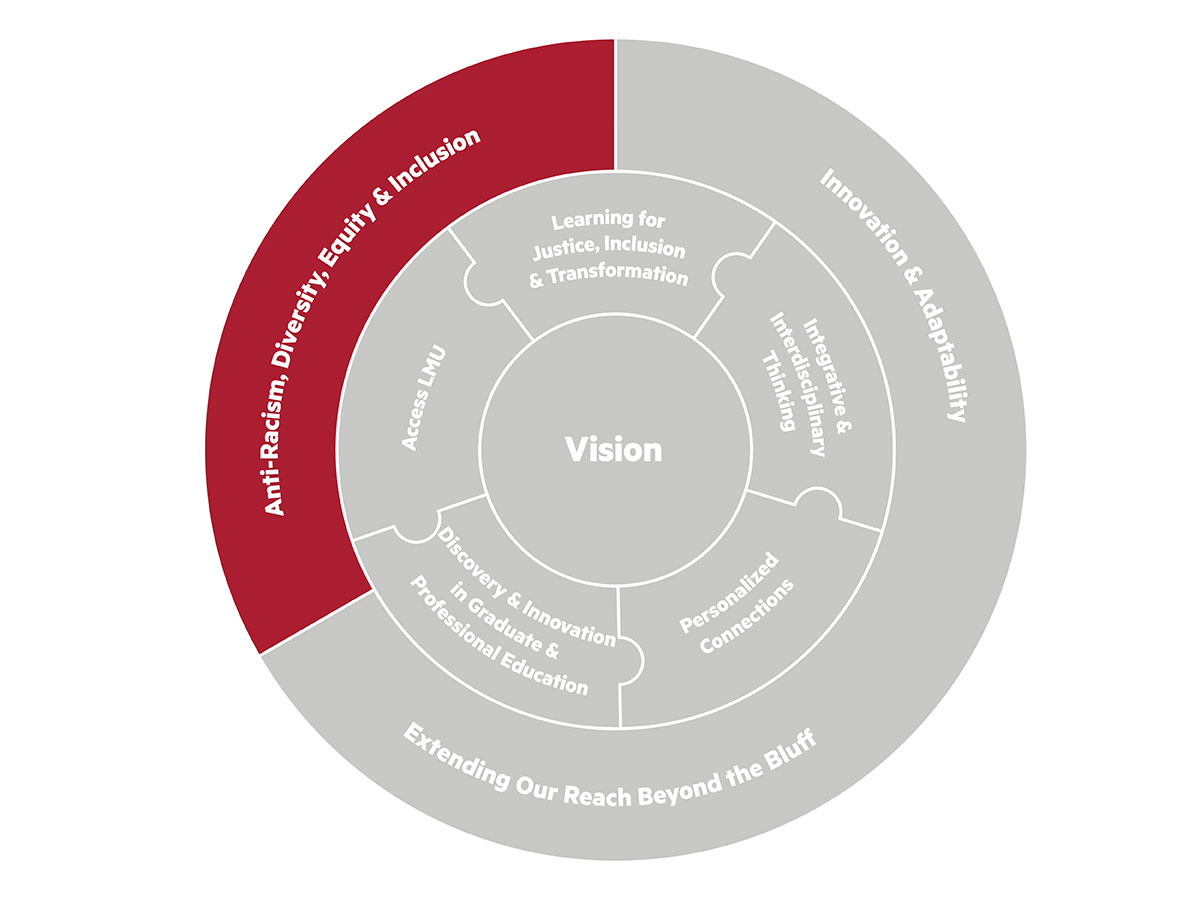In order to create an environment in which all persons may flourish in the fullness of their humanity, we will uphold anti-racism, diversity, equity, and inclusion in all that we do.

Rationale and Strategic Approach
LMU's diversity of students, faculty, and staff has steadily become more central to our institutional identity and strength, in a way that is reflective of and responsive to our Los Angeles home. As a Catholic, Ignatian, Jesuit, and Marymount university, the values of diversity, equity, and inclusion have roots in our commitment to the dignity of all persons as created in the image and likeness of God and to the service of faith and the promotion of justice. We also believe that success in improving diversity, embracing anti-racist practices and strengthening our inclusive excellence is key to widening our appeal and to enhancing our educational quality and creativity in an increasingly complex world. Although improving our institutional diversity, equity, and inclusion (DEI) has a broad base of support among faculty, staff, and leadership, we are conscious of Pope Francis' description of racism as "a virus that quickly mutates." Overcoming systemic barriers to thriving and success for all members of our community will require us to commit to practices, policies, and an organizational culture and climate that will make LMU a national leader in mission-driven, anti-racist institutional and educational practices.
This commitment encourages us to pursue actions that will:
- Increase the diversity of our LMU students, faculty, staff, and administrative leadership, ensuring accountability by identifying specific goals and metrics and tracking and reporting progress.
- Give particular attention to specifying increases in BIPOC representation in all populations.
- Make our organizational climate and culture more anti-racist, diverse, equitable, and inclusive at all levels through systemic analysis of structures and practices and education, training and mission-formation programs.
- Ensure that an LMU education is unequivocally inclusive by working to decolonize the curriculum, expand usage of inclusive pedagogies, and encourage anti-racist curricular and co-curricular collaborations.